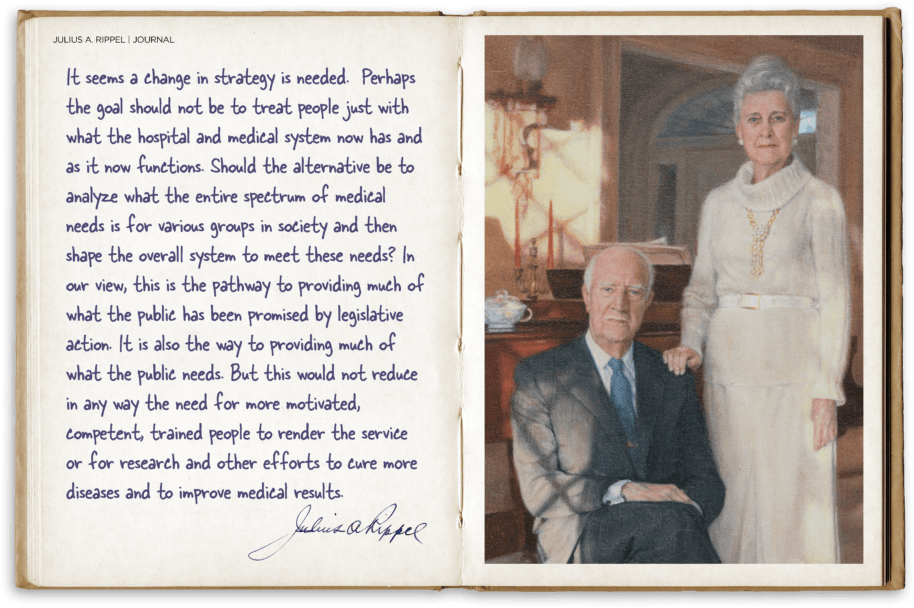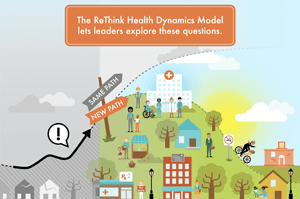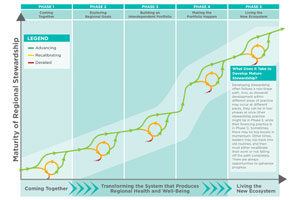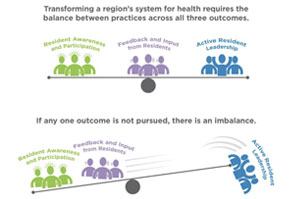This “health system in a computer” is an interactive tool that allows stewards to explore how various strategies might impact their region’s health and well-being. Thousands of people and organizations have used the model to test different combinations of investments and interventions, informing their real-life strategies.
ReThink Health is the brainchild of a group of visionary leaders from multiple sectors. It’s grounded in the earliest thinking of The Rippel Foundation’s first President, Julius A. Rippel, who as far back as 1959 raised concerns about our unsustainable health care system and the need for new ways of thinking and acting to keep people healthy and health care affordable. After decades of grantmaking, it became apparent in 2007 that to achieve Rippel’s mission, a tectonic structural shift to the system that produces health and well-being would be necessary.









